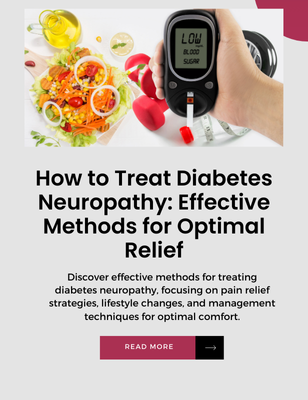Eating the right foods can play a significant role in maintaining brain health and preventing memory loss as we age. Foods rich in antioxidants, healthy fats, and essential nutrients have been shown to support cognitive function and reduce the risk of memory decline.
For example, incorporating berries and leafy greens into your diet provides powerful antioxidants that protect brain cells from damage.
A nutritious diet can have a profound impact on mental agility. Nuts, seeds, and fatty fish like salmon offer omega-3 fatty acids, which are crucial for brain health.
Moreover, whole grains supply a steady source of energy for the brain, helping maintain focus and concentration throughout the day.
Additionally, certain foods are considered brain superfoods due to their unique properties. Dark chocolate, for example, contains antioxidants and natural stimulants that enhance memory and mood.
By choosing a balanced diet that includes these superfoods, individuals can support their cognitive function and potentially prevent memory-related issues in the future.
Key Takeaways
- Diet influences brain health and memory.
- Antioxidant-rich foods protect cognitive function.
- Omega-3s and whole grains boost mental performance.
Understanding Memory Loss and Aging
Memory loss is a common part of aging, but it is not inevitable. Factors like diet, lifestyle, and genetics play crucial roles in how cognitive functions change over time.
Nutrition can support brain health, while aging impacts memory and learning in various ways.
Role of Nutrition in Brain Health
Nutrition significantly influences brain health and memory retention. Foods rich in antioxidants, such as blueberries and spinach, can protect brain cells from damage.
Omega-3 fatty acids found in salmon and walnuts are essential for brain function. These nutrients support healthy blood flow and reduce inflammation, which can delay cognitive decline.
Including nootropics like dark chocolate and green tea can also enhance cognitive performance. These foods contain compounds that may improve memory and focus.
A diet low in processed foods and high in whole, nutrient-rich foods may lower the risk of neurodegenerative diseases. Consuming these foods as part of a balanced diet supports long-term brain health.
Impact of Aging on Cognitive Function
As people age, changes in the brain can lead to memory lapses and reduced cognitive abilities. The brain naturally shrinks with age, and this can affect memory and attention.
Connections between neurons may weaken, making information processing slower.
Neurodegenerative diseases such as Alzheimer’s can also affect memory. These conditions damage brain cells, leading to significant cognitive decline.
While aging impacts brain function, staying mentally active through learning and social engagement can help maintain cognitive abilities. Lifestyle factors, including regular physical exercise and mental challenges, can also mitigate some aging effects on cognition.
Essential Nutrients for Cognitive Function
Certain nutrients play a crucial role in maintaining cognitive function and may help prevent memory loss. These nutrients include omega-3 fatty acids and various vitamins and minerals that support brain health.
Importance of Omega-3 Fatty Acids
Omega-3 fatty acids are essential for brain health. Found in fish like salmon and mackerel, these fats support cell membrane structure and function.
They are known to reduce inflammation and oxidative stress in the brain, which can help maintain cognitive performance.
Research suggests that omega-3s, particularly DHA and EPA, are linked to improved memory and focus. Studies indicate that people with higher levels of these fatty acids in their diet tend to have better memory retention and cognitive flexibility.
Including foods rich in omega-3s or supplements in your diet can be a practical way to support brain health over time. Other sources include flaxseeds, chia seeds, and walnuts, which provide alpha-linolenic acid (ALA), another type of omega-3.
Vitamins and Minerals that Support Memory
Several vitamins and minerals are crucial for cognitive function.
Vitamin B12, known for its role in nerve health, affects memory and focus. A deficiency in B12 can lead to memory issues and, in severe cases, cognitive decline.
Folate is vital for DNA synthesis and repair, and it also helps maintain mental health. Foods rich in folate include leafy greens, legumes, and fortified grains.
Magnesium supports nerve transmission and brain function. Zinc and copper are important for brain signaling, while vitamin E acts as an antioxidant that protects brain cells from oxidative damage. Vitamin K helps in regulating brain function and is found in green vegetables like spinach and kale.
Regularly consuming a diet rich in these vitamins and minerals can support cognitive health and potentially reduce the risk of memory-related conditions.
Dietary Patterns for Optimal Brain Health
Maintaining cognitive function can be influenced by diet. Certain dietary patterns not only protect the brain but also enhance memory and reduce risks of cognitive decline.
Benefits of the Mediterranean Diet
The Mediterranean diet is well-regarded for its positive impact on brain health. Rich in whole grains, fruits, and vegetables, this diet provides essential nutrients that support cognitive functions.
Olive oil is a staple in Mediterranean cuisine and offers healthy fats, which are beneficial for brain cell membranes.
Research suggests that following this diet can lower the risk of Alzheimer’s disease. Antioxidants in greens and berries help reduce inflammation, a contributor to cognitive decline.
Incorporating legumes and fish provides additional omega-3 fatty acids, known for preserving mental agility.
Reducing Intake of Harmful Fats and Sugars
A brain-healthy diet involves minimizing saturated fats and refined carbohydrates. High amounts of these compounds can impair memory by promoting inflammation and oxidative stress.
Foods with trans fats and excessive sugars should be avoided to maintain optimal brain function.
Switching to healthier options like nuts and seeds can provide necessary fats without the negative effects. Sweeteners and processed foods should be replaced with honey or natural fruits.
This dietary adjustment helps protect neurons, supporting stable cognitive processes and preventing memory loss. Limiting these harmful ingredients is crucial for long-term brain health preservation.
Proven Foods to Enhance Memory and Concentration
Certain foods are known to have positive effects on memory and concentration. Fish rich in omega-3 fatty acids, vibrant berries high in flavonoids, and nutrient-packed leafy greens are particularly beneficial.
Fatty Fish and Brain Function
Fatty fish like salmon, mackerel, and sardines are rich in omega-3 fatty acids. These healthy fats are essential for brain health.
Omega-3 fatty acids help build brain and nerve cells, which improves learning and memory. Research shows that people who consume more fish have sharper memory as they age.
Omega-3 fats also help slow age-related mental decline. Fish is a good source of protein without the saturated fats found in red meat. This makes it a heart-healthy choice as well. For those not keen on fish, omega-3 supplements can also offer similar benefits.
Berries and Flavonoids Contribution
Berries, especially blueberries, are packed with flavonoids. These natural compounds have antioxidant effects that help reduce inflammation.
Flavonoids improve memory by enhancing communication between brain cells. Studies found that regular blueberry intake leads to better brain function.
Berries may delay memory decline in older adults. They are easy to add to the diet. Fresh, frozen, or dried, they can be a tasty addition to breakfast cereals or yogurt. Blackberries, strawberries, and raspberries also provide similar benefits. Including a mix of berries can help boost your brainpower effectively.
Leafy Greens and Cognitive Protection
Leafy greens such as spinach and kale are excellent sources of brain-boosting nutrients. They contain vitamin K, lutein, folate, and beta carotene.
These nutrients help lower the risk of cognitive decline. Research links higher intake of leafy greens with a slower rate of brain aging.
Including leafy greens in meals provides antioxidants and anti-inflammatory effects. They support overall brain health and protect against memory problems. Easy ways to eat more greens include adding them to salads, smoothies, or omelets.
By incorporating these vegetables regularly, individuals can harness their protective effects on the brain.
Brain Superfoods and Their Properties
Certain foods are especially beneficial for brain health. They help preserve memory and support overall cognitive function. These foods often include essential nutrients that nourish the brain and enhance its functions.
Nuts and Healthy Fats
Nuts like walnuts are excellent brain foods. They are rich in omega-3 fatty acids, particularly DHA, which is crucial for brain health.
DHA can aid in reducing inflammation and improving mood. Walnuts also contain antioxidants that protect brain cells from oxidative stress.
Healthy fats are another key component found in avocados. They contain monounsaturated fats that may improve cognitive functions.
These fats can support overall brain function by promoting healthy blood flow and reducing inflammation. Including these foods in a diet may provide significant benefits for cognitive health.
Legumes and Fiber’s Role
Legumes such as lentils are high in fiber, which plays a crucial role in maintaining brain health.
Fiber supports steady blood sugar levels, helping to prevent memory loss. Lentils and other legumes provide essential vitamins and minerals that are vital for cognitive functions.
Choline, a nutrient present in some legumes, is important for the production of acetylcholine, a neurotransmitter linked to memory and learning.
By incorporating legumes like beans and lentils into meals, individuals may boost their intake of these nutrients, benefiting their brain function and maintaining cognitive health.
Lifestyle Factors That Complement a Brain-Healthy Diet
Incorporating lifestyle changes with a brain-healthy diet can significantly aid cognitive health. Key factors include regular physical activity, which helps maintain brain volume, and quality sleep that supports memory and mental function.
Physical Exercise and Brain Volume
Physical activity is crucial for maintaining brain health. Studies indicate that regular exercise can help increase brain volume, particularly in areas related to memory.
Engaging in activities like walking, cycling, or swimming can positively influence cognitive function.
Exercise also plays a role in maintaining a healthy body mass index (BMI). A healthy BMI is associated with reduced risk factors for diseases that can negatively impact brain health, such as obesity and diabetes.
Regular movement supports better blood circulation and oxygen flow to the brain, enhancing memory function and mental clarity.
Sleep Quality and Cognitive Health
Good sleep is vital for cognitive health. Adequate rest helps consolidate memories and supports mental functions essential for daily tasks.
Poor sleep quality can negatively impact memory performance and overall brain health.
People who get enough quality sleep tend to have better mental sharpness and improved memory skills. Sleep also supports physical health by balancing hormones that regulate appetite and stress.
This balance contributes to maintaining a healthy BMI, which indirectly supports brain health by preventing obesity-related complications that affect cognition.
Potential Risks and Considerations
Considering dietary changes and supplementation can be beneficial, but there are crucial points to keep in mind. These include finding the right balance in your diet and assessing the quality of specific supplements like omega-3s.
Balancing Diet and Supplementation
Achieving a balance between diet and supplements is important. While dietary supplements can aid in improving brain health, they should not replace whole foods.
Whole foods offer essential nutrients that support cognitive health. Overreliance on supplements can lead to poor nutrition because they don’t provide the full range of nutrients found in a balanced diet.
Additionally, high doses of certain supplements might cause issues. For example, some people might experience increased LDL cholesterol when consuming certain omega-3 sources.
It’s crucial to tailor supplementation plans carefully, ideally with guidance from a healthcare professional, to avoid such problems.
Being mindful of obesity is another factor. Overconsumption of calorie-dense supplements might lead to weight gain, negatively impacting health.
A well-balanced diet can help maintain a healthy weight, potentially reducing the risk of conditions like insulin resistance.
Understanding Omega-3 Supplement Quality
When choosing omega-3 supplements, quality is essential. Not all omega-3 supplements are created equal, and some may not provide the expected benefits.
It’s important to select high-quality supplements to avoid unwanted contaminants or low concentrations of active ingredients.
Omega-3s from high-quality sources can help lower blood pressure and may protect against the buildup of beta-amyloid, a protein linked to memory loss.
Consumers should check for purity certifications and verified sources to ensure effectiveness.
Reading labels and seeking products tested for purity can help mitigate these risks. Consulting a healthcare provider before starting an omega-3 supplement is advisable, ensuring that it aligns with personal health needs and conditions.
Frequently Asked Questions
Diet plays a significant role in preventing memory loss and enhancing cognitive function. Certain foods and nutrients can either boost memory or contribute to its decline.
What dietary choices can enhance memory and concentration?
Incorporating fresh vegetables, whole grains, and a balanced intake of healthy fats can enhance concentration.
Foods like leafy greens, nuts, and berries are particularly beneficial for brain health.
Which nutrients are considered vital for cognitive recovery and memory improvement?
Omega-3 fatty acids, antioxidants, and vitamins like B6, B12, and E are key nutrients for memory improvement.
Omega-3s, found in fish, and antioxidants, found in fruits, can aid cognitive recovery.
Can certain beverages contribute to better memory function?
Green tea and coffee contain compounds that may boost memory function.
Green tea is rich in antioxidants, while caffeine in coffee can enhance alertness and focus.
What are the most effective foods for combatting dementia?
Fatty fish, such as salmon, and leafy greens like spinach are effective in reducing dementia risk.
These are rich in omega-3s and antioxidants which support brain health.
Are there specific foods known to deteriorate memory that should be avoided?
High-sugar and high-fat diets are linked to memory decline.
Processed foods and excessive sugar can impair memory function, making it important to limit their intake.
How does diet influence the risk and progression of cognitive decline and memory loss?
Consistent poor dietary habits increase the risk of cognitive decline. A nutritious diet with plenty of fruits, vegetables, and whole grains can slow progression and support memory function.

















